
Targeting tau neurofibrillary tangles, the (18F)PI-2620 agent reportedly provides promising insight into the development of three neurodegenerative conditions including Alzheimer’s disease.
Senior Editor, Diagnostic Imaging

Targeting tau neurofibrillary tangles, the (18F)PI-2620 agent reportedly provides promising insight into the development of three neurodegenerative conditions including Alzheimer’s disease.
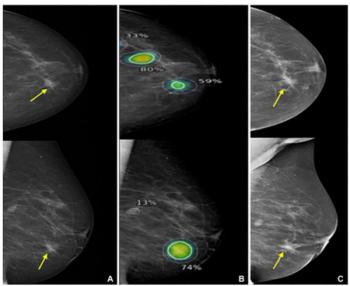
Identifying over 23 percent of interval breast cancers with a 96 percent sensitivity in mammography interpretation, an emerging AI software also facilitated correct localization in over 75 percent of cases involving interval breast cancer, according to new research.
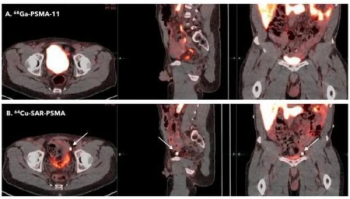
Currently in phase III trials, the 64Cu-SAR-bisPSMA PET agent reportedly offers a longer half-life and higher tumor uptake than other radiopharmaceuticals for prostate cancer imaging.
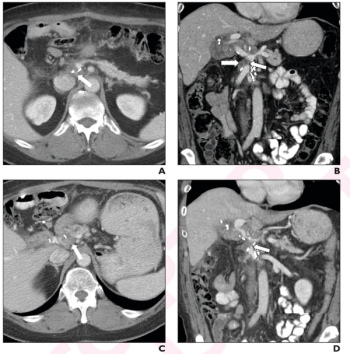
For patients who had post-op recurrence after a Whipple procedure for pancreatic ductal adenocarcinoma (PDAC), between 80 to 86 percent of follow-up CT exams revealed new or increased soft tissue.
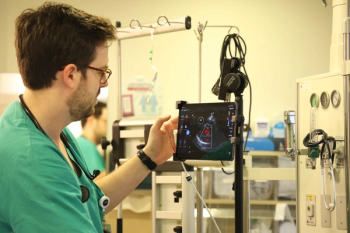
Combining four CAD modules for valvular pathologies with a variety of automated measurements, the AI-enabled AISAP Cardio ultrasound system reportedly facilitates up to a 90 percent accuracy rate in detecting common cardiac conditions.
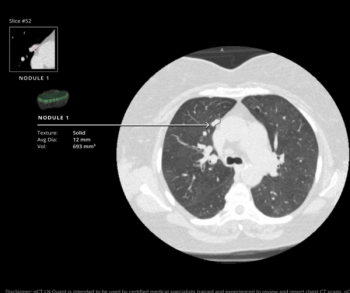
The AI-powered qCT LN Quant software reportedly generates 2D and 3D reconstructions and facilitates assessment of morphologic data across multiple thoracic studies.
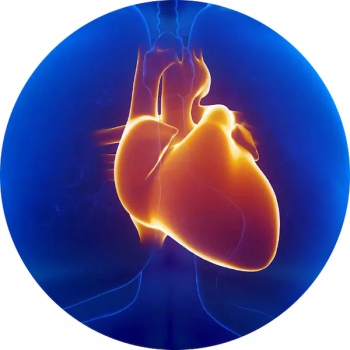
Key features of the HealthCCSng V2.0 software include numerical coronary artery calcium (CAC) scoring, a new zero CAC category and user customization of upper and lower limits for CAC scoring categories.
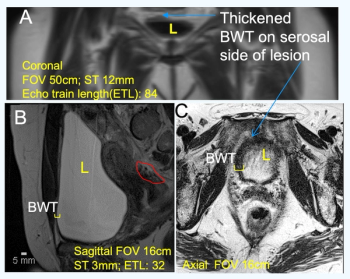
A new MRI contrast agent may provide a viable non-invasive alternative for the detection of interstitial cystitis, according to preliminary research presented at the 5th International Consultation on Interstitial Cystitis Japan (ICICJ) in Kyoto, Japan.
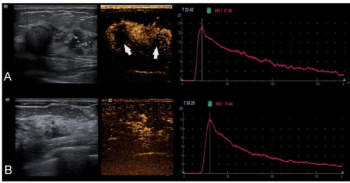
Adding two key findings from contrast-enhanced ultrasound to a predictive model of mammography, conventional ultrasound and clinicopathological findings led to a 86.1 percent AUROC for predicting the upgrading of ductal carcinoma in situ to invasive breast cancer, according to new research.
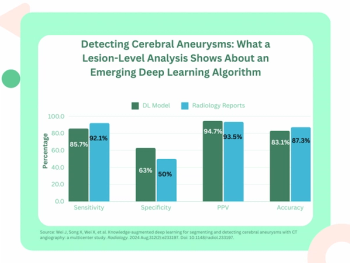
Providing an 85.7 percent sensitivity rate for detecting cerebral aneurysms on computed tomography angiography (CTA), the deep learning model also offered a similar AUC (93 percent) in comparison to radiology reports (91 percent).
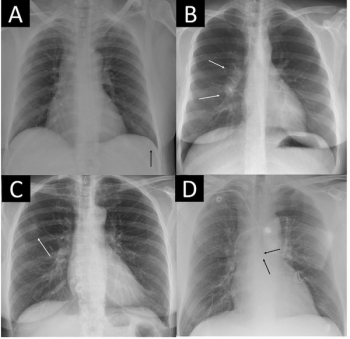
New research suggests the use of an AI software may help rule out pathology on over 50 percent of unremarkable chest X-rays with a 98 percent sensitivity threshold.

Detecting cerebral microbleed (CMB) in one of six healthy adults in a new study, researchers also found that CMB was the only MRI marker of small vessel disease (SVD) to be significantly associated with traumatic brain injury (TBI).
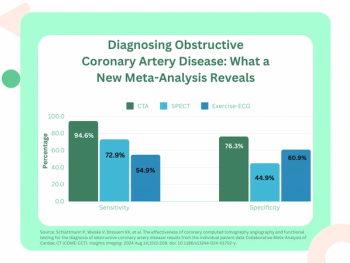
For patients with stable chest pain, CT angiography demonstrated a nearly 40 percent higher sensitivity rate than exercise electrocardiography and over an 18 percent higher sensitivity rate than SPECT for detecting obstructive coronary artery disease (CAD).
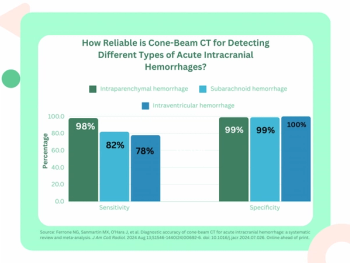
While cone-beam computed tomography (CBCT) demonstrated high pooled sensitivity and specificity rates for intraparenchymal hemorrhage in the systematic review, researchers noted higher false-negative rates for subarachnoid and intraventricular hemorrhages.
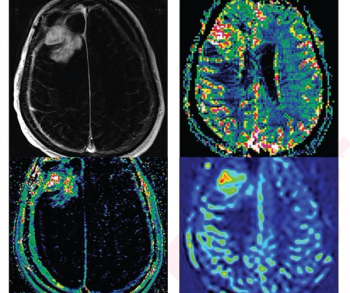
Based on surveys of neuro-oncologists taken before and after the use of MRI perfusion imaging and spectroscopy in patients with high-grade gliomas, researchers found the advanced imaging would have led to a greater than fivefold change in patient management in comparison to previous research.
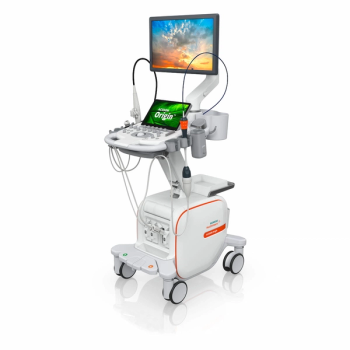
Offering a variety of AI features for streamlined workflow and enhanced visualization, the Acuson Origin ultrasound system also features the newly FDA-cleared AcuNav Lumos 4D ICE (intracardiac echocardiography) catheter.
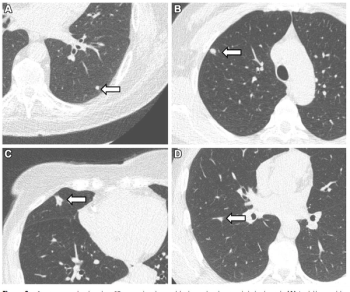
Utilizing low-dose computed tomography (CT) scans for a cohort of over 10,000 non-smokers, researchers found that over 11 percent of study participants had clinically relevant lung nodules.

In a recent interview, Soroush Rais-Bahrami, M.D., discussed key findings from a post-hoc subgroup analysis of the SPOTLIGHT trial that examined the use of the PET imaging agent 18F-flotufolastat (Posluma) in African American men.
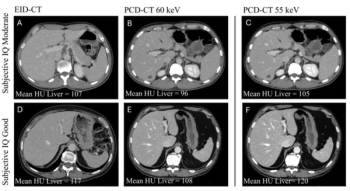
In addition to a 20.1 percent reduction in iodine load, photon-counting CT offered higher signal-to-noise and contrast-to-noise ratios than energy-integrating detector CT in a new study.
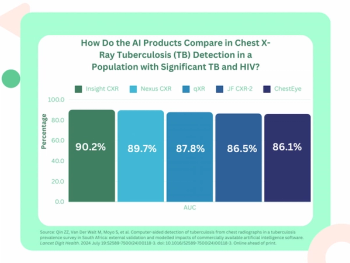
At a 90 percent threshold for sensitivity, Lunit’s Insight CXR and the Nexus CXR software from Nexus demonstrated the highest specificity rates for tuberculosis (TB) detection in a patient population with a high prevalence of TB and HIV.
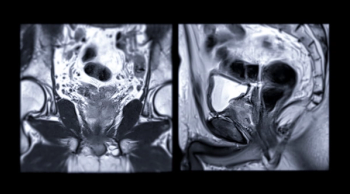
Prostate biopsy reclassification was 2.3 times more likely with PI-RADS > 4 lesions in patients in comparison to those with PI-RADS 1-3 lesion assessments, according to new MRI research involving nearly 1,500 men with low-risk and favorable intermediate risk for prostate cancer.
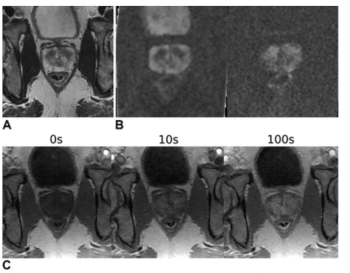
New research revealed an 86 percent AUC for deep learning detection of clinically significant prostate cancer in comparison to 84 percent for four abdominal radiologists with at least 10 years of experience.
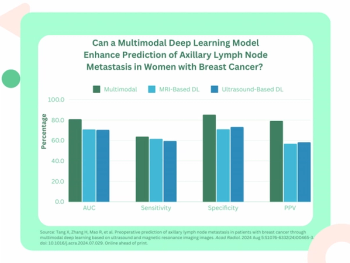
External validation testing revealed a deep learning combination of breast MRI, ultrasound and clinical factors had a 10 percent higher AUC for predicting axillary lymph node metastasis than sole use of MRI- or ultrasound-based deep learning models in patients with breast cancer.
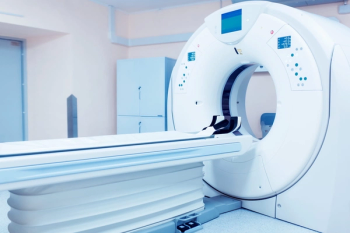
Automated CT-derived assessments may provide stronger stratification of diabetes and cardiometabolic risks than conventional predictive models, according to a new study of over 32,000 adults in Korea.
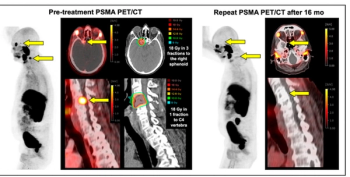
Emerging research revealed a median progression-free survival of 16.4 months and a 29-month mean freedom from a new line of systemic therapy for the use of PSMA PET/CT guided, metastasis-targeted radiotherapy for patients with oligometastatic castration-resistant PCa.
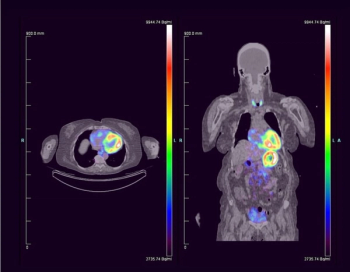
Reportedly the only imaging agent to garner a breakthrough therapy designation for cardiac amyloidosis, 124I-evuzamitide has demonstrated robust sensitivity for the condition as well as a favorable safety profile.
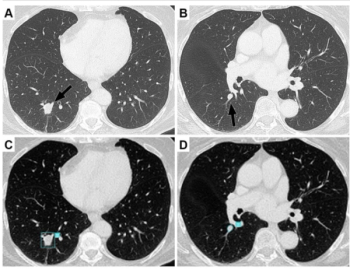
New research shows the use of adjunctive AI resulted in a 12 percent higher sensitivity rate for lung nodule detection in comparison to radiologists without AI.
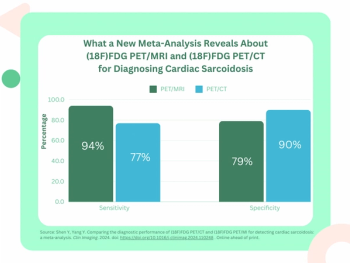
The researchers found that (18F)FDG PET/MRI had a 17 percent higher pooled sensitivity rate for cardiac sarcoidosis in contrast to (18F)FDG PET/CT.
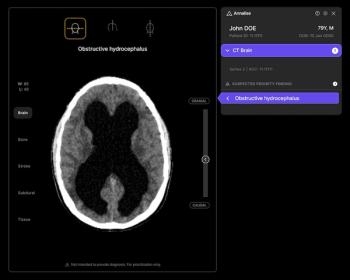
The first radiology triage modality to garner a Breakthrough Device Designation from the FDA, Annalise-Obstructive Hydrocephalus has reported sensitivity and specificity rates of 97.5 percent and 95.3 percent respectively.

In a study involving 217 percutaneous cryoablation procedures for treating recurrent or metastatic soft tissue sarcoma in 141 patients, researchers noted an 86 percent rate of local progression-free survival and a 2 percent complication rate.